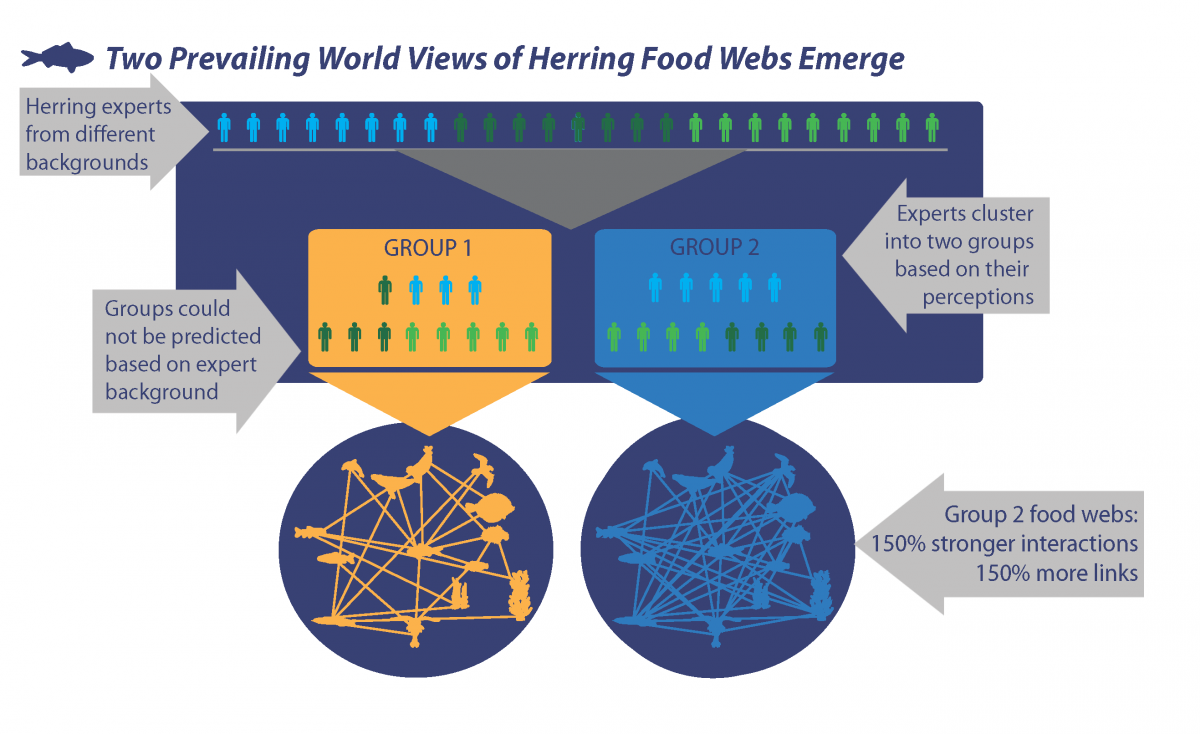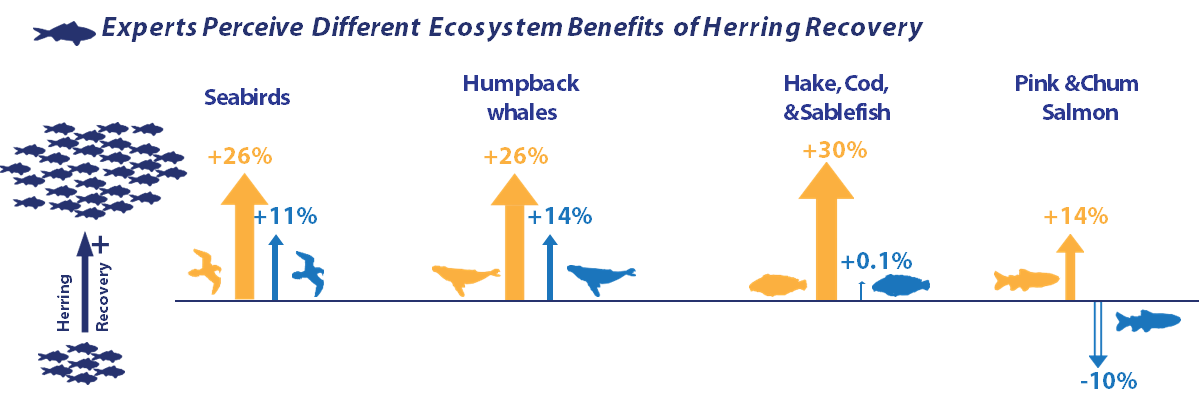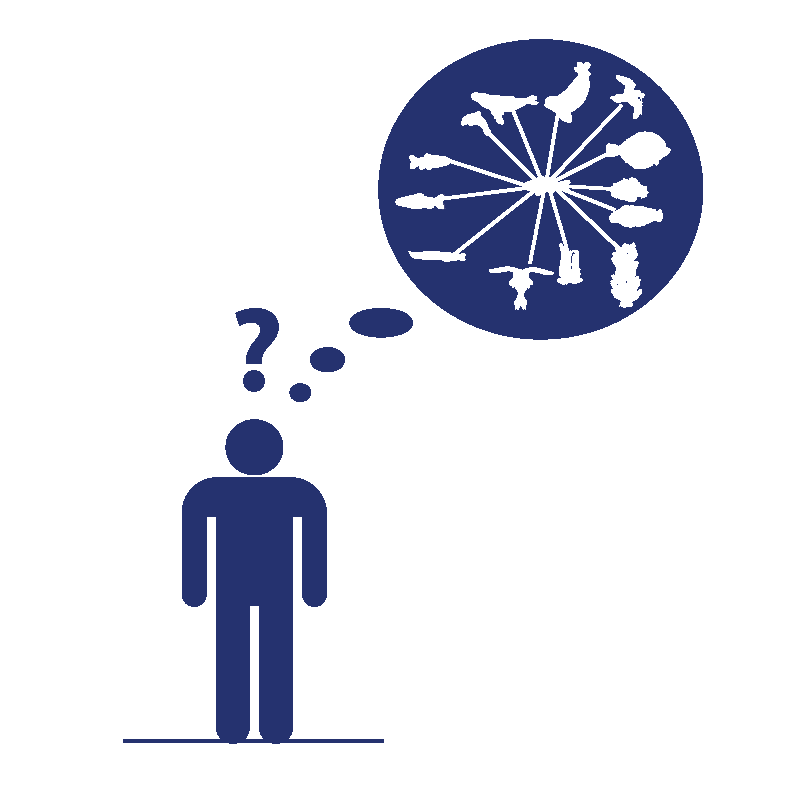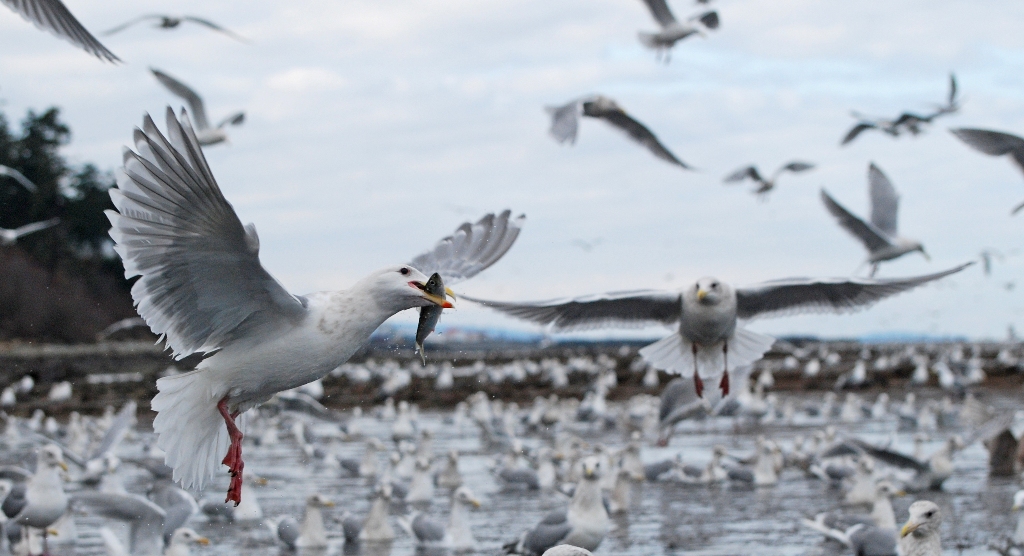We interviewed experts to explore how they perceive food web interactions centered on Pacific herring in the region of Haida Gwaii. We found that experts vary widely in their views of the linkages between species. These differences could not be predicted based on an expert’s background. This study exposes gaps in understanding and highlights the necessity of recognizing a diversity of perspectives in herring management.
What did we find?
Experts varied widely in their preceptions of the herring food web structure.
Two main views of herring food web structure emerged. Group 2 perceived a more complex food web with more and stronger interactions thatn Group 1 (see figure below).
Differences could not be predicted based on background or affiliation - i.e. whether an expert was from an academid institurion, government agency, or Haida community organization did not predict how that expert perceived the food web.

The two groups differed on (1) how much other species will be impaced by herring recovery, and (2) whether those impacts will be positive or negative (see figure below). For example, when we used experts' food webs to look at how an increase in hering abundance would affect other species, some webs showed an increase in pink and chum salmon as a result whil others predicted a decline.

Why is this study important?
Pacific herring are known to be ecologically, economically and culturally important in Haida Gwaii, but the strength and number of connections they have with otehr species within the food web are not well known. Without this important information, marine managers charged with stewarding herring populations often look to expert knowledge to help fill information gaps and inform management decision.
However, even expert's perceptions of the world can vary dramatically. Because of this it is vital to understand where differences in perception exist among ecological experts and how this variability may underlie conflict among stakeholders.
What did we do?
For this study, we surveyed 27 experts in Haida Gwaii herring food webs. The experts came from a variety of backgrounds and affiliations, including academic, non-governmental, and governmental organizations (Haida and Canadian).
We asked these experts a series of questions to map their understanding of the herring food web. We then compared these maps to determine not only how individuals' perceptions differed, but whether these differences could be predicted by an expert's background or affiliation. We then explored what the ecosystem would look like under different management scenarios based on these perceived food webs.

How can expert opinion inform herring food web recovery and management?
- The variety of food web world views and the fact that they cannot be predicted by demographic characeristics suggests that there are strong differences in opinion around how much the food web will benefit from herring recovery.
- Different food web perceptions may contribute to conflict surrounding future herring management
- Variable perceptions of the direction and strength of connections between herring and other species suggests the need to build consensus about herring and ecosystem-based management.

Photo credit: Guy Monty
Research Team
Adrian Stier, Jameal Samhouri, Steven Gray, Rebecca Maratone, Megan Mach, Ben Halpern, Carrie Kappel, Mary Hunsnicker, Courtney Scarborough, Phil Levin
Management Partners
Council of the Haida Nation, Fisheries and Oceans Canada, Gwaii Haans Archipelago Management Board, Parks Canada
For more information:
Adrian Stier: adrian.stier@gmail.com
Phil Levin: phil.levin@noaa.gov
The team would like to offer special thanks to expert participants in this study for their time and thoughtful responses.
Click here for a pdf version of the information above.
